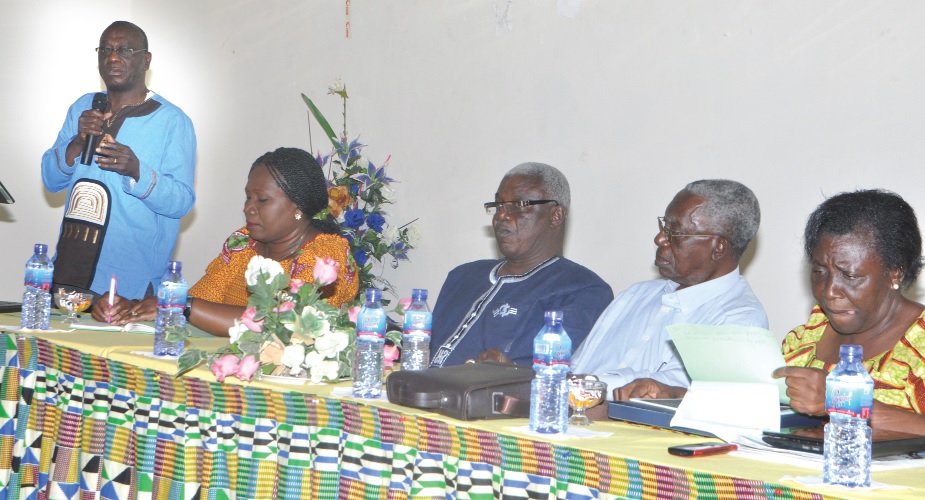Govt urged to simplify CHPS policy
Arku Jasmine
 A research conducted by a health-based non-governmental organisation (NGO) has recommended to the government to simplify the policy on Community-based Health Planning and Service (CHPS) for it to become successful.
A research conducted by a health-based non-governmental organisation (NGO) has recommended to the government to simplify the policy on Community-based Health Planning and Service (CHPS) for it to become successful. According to the research conducted by the Centre for Social Health Services (CHeSS) in July this year, most of the service providers posted to the CHPS compounds were not properly oriented to understand their roles with regard to the CHPS policy.
At a workshop to disseminate findings of the research, which was conducted with funding from STAR Ghana, Dr Alex Nasser, the lead researcher, said the findings on the field showed that most of the health officials at the CHPS compounds were providing services which went beyond their mandate, thereby making it impossible for them to achieve their aims.
The research was conducted in the Upper East, Volta, Eastern and Greater Accra regions.
The CHPS is a national primary healthcare strategy that seeks to reduce both geographic and financial barriers to healthcare access through the zoning and posting of resident trained nurses to community-based facilities.
The strategy evolved from a community study on a family and reproductive health programme which was carried out at the Navrongo Health Research Centre in the Kassena-Nankana District in the Upper East Region in 1993.
The CHPS has attracted international recognition as the best initiative for maternal and child survival.
Although the country aims at providing at least 36,000 CHPS compounds in hard-to-reach and deprived communities, it has been able to provide less than 4,000 across the country.
The research also called for better supervision and engagement from both the national and regional directorates of health at the various CHPS zones to ensure that healthcare providers were given the needed support in their work.
According to Dr Nasser, although community involvement in the CHPS programme was high, there was the need for the various district assemblies where the compounds were located to be interested in their work and commit some resources towards it.
He said the skills of most of the community health officers (CHOs) needed to be upgraded to ensure that they delivered quality services to the communities where they were located.
The Director of Policy Planning and Monitoring of the Ghana Health Service (GHS), Dr Erasmus Agongo, said the CHPS programme had become a great success in the country, despite some of the challenges it faced.
A number of African countries, including Sierra Leone, Nigeria, Ethiopia, Tanzania, have been in the country to understudy the programme in order to replicate it in their countries.
A team from Kenya is expected in the country soon to learn from Ghana.
The Chief Executive Officer (CEO) of CHeSS, Dr Sam Adjei, said in an address that the concept of the CHPS compounds became necessary due to physical and socio-cultural barriers encountered when delivering health care to people in hard-to-reach areas.
He said the policy made it easier for community leaders and healthcare providers to plan for better healthcare service delivery for their communities.
A former Deputy Minister of Health, Dr Moses Adibo, said the implementation of the CHPS policy was the country’s way of providing primary health care for people in hitherto hard-to-reach areas.
By Rebecca Quaicoe-Duho & Sarah Mensah/Daily Graphic/Ghana